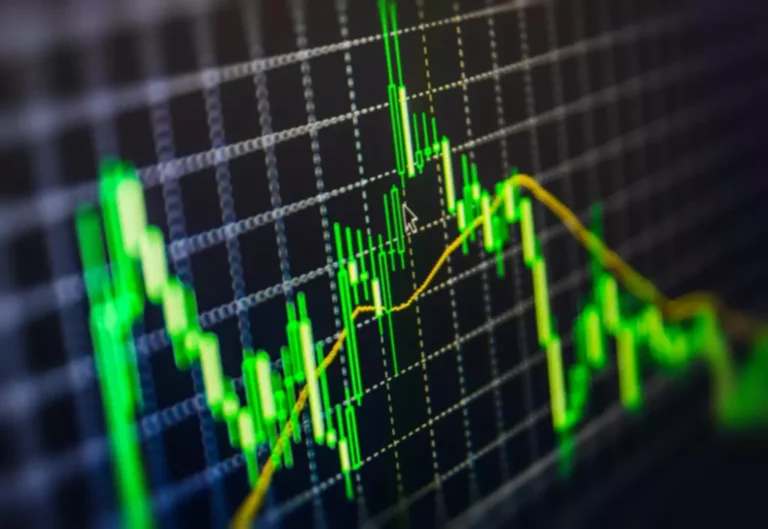As for liquidity suppliers (LPs), they act as mediators between brokers and MMs. Brokerage companies need to provide active traders with a broad order guide, especially whereas talking about fewer in-demand pairs. As such, traders face the state of affairs once they can’t buy and promote currencies by the market value. Traders entry zero spreads (no variations between bid and ask prices).To summarize the distinction between market maker vs liquidity provider, keep in thoughts that their roles diverge. MMs are responsible for broker liquidity provider FX inflows and outflows, sustaining the market lively whereas a liquidity supplier is a bridge between brokerage corporations and market makers. Market makers play an important role within the financial market as they supply liquidity and facilitate trading activity.
Liquidity Provider Vs Market Maker: Why Does The Forex Market Need Both?
By partnering with reliable liquidity suppliers or market makers, foreign exchange brokers can provide optimal trading situations to their shoppers. It determines the benefit with which trades may be executed and impacts trading costs. By partnering with reputable liquidity providers or market makers, forex brokers can guarantee they offer aggressive trading situations to their shoppers and maintain a liquid trading surroundings. In the world of economic markets, liquidity performs a crucial function in ensuring easy buying and selling operations. While they both contribute to market liquidity, there are elementary variations in their roles and operations. In this article, we will delve into the distinction between liquidity providers and market makers and explore their significance in forex trading.
Key Differences Between Liquidity Providers And Market Makers
They maintain millions of dollars and different currencies, maintaining the best stage of FX turnover. Such a market can not exist without market makers.These major gamers buy and sell giant volumes of property, impacting their charges and capitalizing on the variations. These companies may embrace consulting, research, investment recommendation, and retirement planning. Many brokers present trading platforms, trade execution providers, and customized speculative and hedging options with using choices contracts. Options contracts are derivatives which means they derive their worth from an underlying asset. Options give buyers the best, however not the obligation to buy or sell securities at a preset value the place the contract expires in the future.
Working Principles Of Market Makers
However, market makers also have the power to supply liquidity to the market in a method that core liquidity suppliers might not be in a position to. For example, a market maker might be able to provide liquidity in a particular security even when there is little or no trading activity in the market. CLPs typically have direct market access (DMA) to the market, which suggests they will execute trades immediately on the trade. Market Makers, then again, might not have DMA and may need to execute trades through brokers. This can lead to delays in commerce execution and should impression their ability to supply liquidity. As traders, its important to understand the differences between core Liquidity providers (CLPs) and Market Makers.

Advantages Of Liquidity Providers
- Conversely, market makers (MMs) conduct the same operations on the forex market, mainly for his or her benefit.
- A liquidity provider, because the name suggests, is an entity that provides liquidity to the market.
- While the free market precept is mainly constructive for the global market, some crises occur outside of the pure market demand and supply modifications.
- They use subtle algorithms to research market data and identify trading opportunities.
- The change usually makes up the distinction following the agreement if a market maker’s profit falls beneath the predetermined threshold.
By doing so, they supply liquidity and permit patrons and sellers to execute trades effectively. Market makers charge a variety on the buy and sell value, and transact on each side of the market. Market makers establish quotes for the bid and ask prices, or purchase and sell costs.


Liquidity suppliers must be certain that their quotes are balanced and that they have adequate capital to deal with potential losses. Additionally, they have to be vigilant in monitoring market conditions and adjusting their quotes accordingly to mirror changing provide and demand dynamics. Firstly, they enhance market depth, making certain that merchants can execute orders of various sizes without significantly impacting the market worth. This depth supplies stability and reduces slippage, which is the distinction between the anticipated execution value and the actual worth at which the commerce is executed. Brokers are typically firms that facilitate the sale of an asset to a purchaser or seller.
In today’s monetary markets, the majority of market-making is completed by algorithms and computers, particularly within the crypto market. In other words, Forex merchants are trading against the broker, and any earnings gained by the dealer are offset by the loss that is sustained by the Forex brokerage firm. Because of the excessive chance of constructing a profit for the brokerage, many Forex brokerages select to function beneath this strategy.
Market makers help keep the market functioning, meaning if you want to sell a bond, they are there to buy it. Similarly, if you need to buy a inventory, they’re there to have that stock available to promote to you. Venture capital due diligence is a important course of that buyers undertake to assess the… Callable bonds symbolize a significant section of the bond market, providing distinctive benefits and…

Market makers are usually large investment firms or financial institutions that create liquidity in the market. Some help to facilitate gross sales between two events, whereas others assist create liquidity or the provision to purchase and promote available within the market. In distinction to liquidity providers, B-book brokers take the alternative aspect of their prospects’ transactions and don’t ship the orders by way of to a 3rd get together. In actuality, some Market Makers earn commissions by providing liquidity to the businesses that they characterize on behalf of their clients.
While liquidity providers focus on supplying liquidity on to the market, market makers act as intermediaries and facilitate trading. Understanding the differences between these two entities is essential for traders, as it could affect their trading experience, costs, and execution high quality. Liquidity providers are market individuals who’re willing to purchase or promote belongings at any time. They embody market makers, core liquidity providers, and different institutional buyers. Liquidity suppliers play a crucial function in maintaining market liquidity by offering shopping for or promoting alternatives to different merchants.
Liquidity suppliers are subject to laws as they play a crucial role in maintaining market stability. Institutional market makers, when operating as market makers, are also regulated entities. ECN brokers are considered to be essentially the most reliable and transparent, as they offer direct entry to one of the best obtainable quotes from the biggest banks and establishments. They additionally usually have lower spreads and allow for quicker execution of trades.
Through their capital and assumption of the chance, MMs also play a crucial role in managing market risk. As a results of this threat absorption, the trading surroundings is more secure and traders are shielded from sudden movements in worth. By providing quotes, completing orders, and connecting brokers to the interbank market, LPs are liable for guaranteeing that markets have an sufficient amount of liquidity. MMs set up and stick with the ask and bid costs for monetary products on an exchange or buying and selling platform, often within a predefined unfold. When choosing a Core Liquidity Provider, there are a quantity of factors to contemplate. First, you need to look for a provider with a robust reputation and monitor record.
This additionally applies to margin buying and selling in high-risk instruments such as derivatives. Liquidity providers and market makers utilize superior expertise and infrastructure to make sure fast and dependable execution, minimizing latency and delays. Given their energetic position in price quotes, they usually have refined technological interfaces, permitting real-time communication of bid and ask costs. Integration with brokerages might require tailored tech options to ensure seamless data flow. While some forex sectors are inherently liquid, together with the Euro, GBP and US dollar, others might have a stricter time organically developing ample provide and demand. Moreover, quite a few political, financial, and international components may affect this intricate stability.
For brokerages eyeing long-term progress and stability, strategic collaborations with market makers or liquidity suppliers is normally a game-changer. They’re dynamic entities that must be nurtured, evaluated, and fine-tuned to make sure they proceed to be mutually useful in an ever-evolving financial panorama. By emphasizing transparency, shared growth, and continuous assessment, brokerages can harness the true potential of those collaborations, propelling them towards sustained success. They quote both shopping for and promoting costs for an asset, making certain that there’s always a counterparty available for merchants, regardless of market situations. Their operational model revolves round facilitating steady buying and selling even in less liquid property or during instances of market stress.
Unlike market makers who actively create a market by quoting both purchase and sell prices, liquidity providers typically supply asset costs primarily based on the prevailing market circumstances. By constantly offering buy and promote quotes, they slender the spread between bid and ask prices, making it less expensive for merchants to enter and exit positions. This elevated efficiency benefits all market participants, fostering a extra vibrant and competitive market. When it comes to selecting between core liquidity suppliers and market makers, there is not a one-size-fits-all reply. The best option will rely upon a number of components, including the size of the commerce, the liquidity of the market, and the trading strategy getting used. Core liquidity suppliers usually provide 24-hour buying and selling, as they are able to entry the interbank market at any time.
Read more about https://www.xcritical.in/ here.
